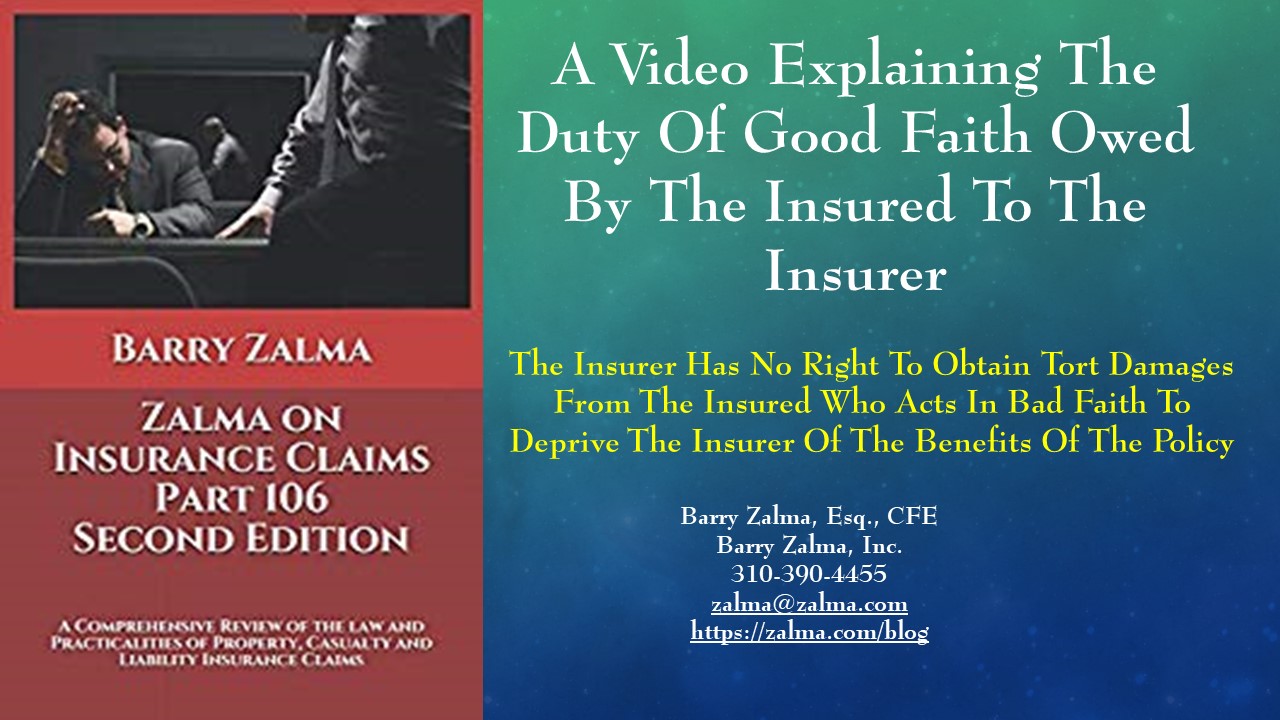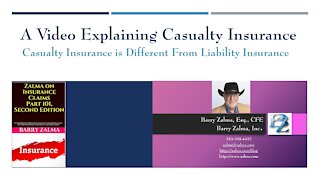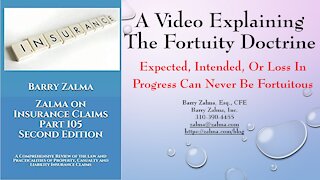Premium Only Content

A Video Explaining the Duty of Good Faith Owed by the Insured to the Insurer
The Duty of the Insured
The purpose of the implied covenant of good faith and fair dealing is to protect the reasonable expectations of both parties to the contract. The duty to act in good faith is a mutual duty imposed on both the insured and the insurer. However, regardless of the clear statements of the law that the duty is mutual, in practice it requires the insured to deal only with a modicum of fairness toward the insurer while the insurer must deal with its insured with the utmost good faith.
In Washington, a statute provides:
"The business of insurance is one affected by the public interest, requiring that all persons be actuated by good faith, abstain from deception, and practice honesty and equity in all insurance matters. Upon the insurer, the insured, their providers, and their representatives rests the duty of preserving inviolate the integrity of insurance." [RCW 48.01.030
Even if an insured is found to have treated his insurer maliciously, and with bad faith, the insurer can only recover actual contract damages and may not, in California, recover punitive damages from its insured. The courts will allow the insurer to offset the bad faith damages it owes to an insured by a percentage the jury attributes to the bad faith of the insured.
This statement of the law may seem unreasonable: if an insured is entitled to tort damages for the bad faith conduct of the insurer, the law should fairly and equitably allow the insurer to recover tort damages as a result of the bad faith conduct of the insured. At present this is not the case.
Examples of bad faith conduct by the insured include:
* presentation of a fraudulent claim;
* misrepresentation of material facts, which if known by the insurer, would have caused the insurer to refuse the insurance; and
* willful refusal to attend trial.
Since the insurer’s obligation is “absolute and independent,” such bad faith conduct would not bar the insured’s action. It could result in a comparative bad faith analysis by the trier of fact and the reduction of any award the insured might have otherwise received. It would not, however, result in a reduction of punitive damages based upon an insurer’s malicious, oppressive, or fraudulent behavior.
An insurer argued to the Sixth Circuit that the Court should recognize a cause of action of reverse bad faith in the insurance context and award the insurer damages associated with Plaintiff’s fraudulent claim. Defendants maintained that there is a strong public policy against allowing insureds to profit from their own wrongdoing while simultaneously subjecting insurers to inordinate increased costs for investigation, defense, and litigation.
-
 8:57
8:57
Barry Zalma, Inc. on Insurance Law
1 year agoNo Coverage for Benefits no Right to Bad Faith Damages
209 -
 16:02
16:02
Barry Zalma, Inc. on Insurance Law
4 years agoA Video Explaining That the EUO is A Duty Owed by the Insured to the Insurer
15 -
 16:33
16:33
Barry Zalma, Inc. on Insurance Law
4 years agoA Video Explaining the Unethical Insured
16 -
 16:42
16:42
Barry Zalma, Inc. on Insurance Law
4 years agoA Video Explaining Casualty Insurance
78 -
 21:18
21:18
Barry Zalma, Inc. on Insurance Law
4 years agoA Video Explaining The Fortuity Doctrine
28 -
 14:52
14:52
Barry Zalma, Inc. on Insurance Law
4 years agoA Video Explaining The Creation And Application Of The Duty To Defend
25 -
 16:17
16:17
Barry Zalma, Inc. on Insurance Law
4 years agoA Video Explaining the Concurrent Cause Doctrine
46 -
 15:24
15:24
Barry Zalma, Inc. on Insurance Law
4 years agoA Video Explaining the Claims Made CGL
53 -
 17:29
17:29
Barry Zalma, Inc. on Insurance Law
4 years agoA Video Explaining the Nature of Insurance Underwriting
36 -
 15:19
15:19
Barry Zalma, Inc. on Insurance Law
4 years agoA Video Explaining the Need for Construction Experts
53